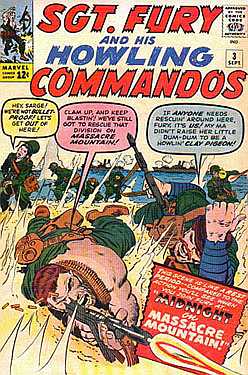I’m not one for Christian celebrities. To me, the whole concept of a “Christian celebrity” loiters in oxymoron territory, like “jumbo shrimp” or “corporate ethics.” Still, Christian celebrities exist and hold a lot of sway in some circles.
Recently, Kirk Cameron (actor/hero of the Left Behind films) addressed a convention of Southern Baptist pastors on what he sees as a pressing need in the pastorate:
Can I speak to you from my heart for a moment? I realize that, theologically, I’m not worthy to wash your socks. But imagine this scenario with me, if you will: Imagine I’m a “seeker- I’m a non-Christian, sitting in your church week after week after week listening to you. Am I ever going to hear the message that will save my soul from Hell? Will you ever tell me the truth clearly enough so that I realize that my sin has made me an enemy of God: that I am currently on the path that leads to destruction, with the wrath of God dwelling upon me, and that unless I repent and put my faith in the Savior, I will perish? Or have you decided that it’s better to simply entertain me, and on Sundays I can come to have my “felt needs met with good music and good advice? Pastor, while I would appreciate that, it’s the ultimate betrayal of my trust in you if you don’t tell me the truth. Will I ever hear the words “repent, “surrender, “turn to the Savior, “be born again? If you don’t tell me those things, how will I ever know to do it?Please don’t leave it up to the Wednesday night small-group leader. They’re taking their cues from you. You’re leading the flock.
(HT: The Thinklings)
Awesome passion there out of Mr. Cameron. I’m certain a few hearty “Amens” will rise up out of the reading audience.
But on perusing that impassioned plea, I noticed a couple enormous problems.
Here’s another set of enormous problems (compiled by Pastor Darren Patrick):
- Fifteen hundred pastors leave the ministry each month due to moral failure, spiritual burnout, or contention in their churches.
- Fifty percent of pastors’ marriages will end in divorce.
- Eighty percent of pastors and eighty-four percent of their spouses feel unqualified and discouraged in their role as pastors.
- Fifty percent of pastors are so discouraged that they would leave the ministry if they could, but have no other way of making a living.
- Eighty percent of seminary and Bible school graduates who enter the ministry will leave the ministry within the first five years.
- Seventy percent of pastors constantly fight depression.
- Almost forty percent polled said they have had an extra-marital affair since beginning their ministry.
- Seventy percent said the only time they spend studying the Word is when they are preparing their sermons.
- Eighty percent of pastors’ spouses feel their spouse is overworked.
- Eighty percent of pastors’ spouses wish their spouse would choose another profession.
- The majority of pastors’ wives surveyed said that the most destructive event that has occurred in their marriage and family was the day they entered the ministry.
While the issues Cameron confronts and Patrick notes appear unrelated, a general truth emerges about the flawed way we American Christians do church.
Consider the following verse:
And truly He gave some to be apostles, and some to be prophets, and some to be evangelists, and some to be pastors and teachers, for the perfecting of the saints, for the work of the ministry, for the edifying of the body of Christ.
—Ephesians 4:11-12 MKJVAnd he gave the apostles, the prophets, the evangelists, the shepherds and teachers, to equip the saints for the work of ministry, for building up the body of Christ…
—Ephesians 4:11-12 ESVAnd indeed He gave some to be apostles; and some prophets; and some evangelists; and some pastors and teachers; with a view to the perfecting of the saints for the work of the ministry, for the building up of the body of Christ…
—Ephesians 4:11-12 LITV
I gave a few different translations there to provide a more thorough understanding of the passage in question. The Greek word used for pastor is the same as used for shepherd in the NT. Either way one looks at the word, it carries the meaning I wish to use in what follows.
My main criticism of Cameron’s exhortation is not that it’s wrong in content, but that it’s directed to the wrong people. Cameron’s talking to pastors, but he clearly gears his message to people inhabiting another ministerial office. Notice the meat sentences:
Pastor… it’s the ultimate betrayal of my trust in you if you don’t tell me the truth. Will I ever hear the words “repent, “surrender, “turn to the Savior, “be born again? If you don’t tell me those things, how will I ever know to do it?
Cameron’s mistake here is to charge the pastor with the job of the evangelist. Some will accuse me of drawing too fine a line on this, but you’ll have to argue with Paul. The apostle clearly noted a distinction between pastors and evangelists in Ephesians 4.
It’s popular today to speak of The Five-fold Ministry of Ephesians 4, and many churches adhere to the idea that the pastor should be an apostle, prophet, evangelist, pastor, and teacher, but I can’t read the Bible and find folks who fit that mold. (The role of apostle itself appears to include many of the functions of the others, but let’s be real here: apostles are exceedingly rare.) I mentioned the NT prophet Agabus the other day, but no one called him a pastor or teacher. Paul told Timothy to do the work of an evangelist, but he didn’t tell him to also do the work of a prophet or apostle.
Why are we not asking what the genuine biblical role of the pastor is? Perhaps it’s far more limited in scope than we’ve made it out to be.
If we consider the finer truth of the use of the word shepherd for pastor, what does a shepherd do?
- He protects the flock from harm.
- He tends to their wounds and diseases.
- He comforts them when they are afraid.
- He takes them out to a place where they can find the substantial food and water weaned sheep need to reproduce, tend their lambs, grow, and prosper.
I think that’s an apt description of what a pastor does with his flock of believers. We can take this analogy one step further. The apostle is the one who supervises the farm’s staff. The evangelist is the one who coordinates the reproduction, overseeing the birthing of new lambs. The prophet communicates the will of the farm owner.
But we in the Western Church don’t run our churches this way, do we? I hear so many calls from big name Christians to raise up more pastors. But who is calling to raise up more evangelists? Do we even acknowledge that such a role exists in the modern Church? Should we assume that all pastors are evangelists?
I’m not sure we should. This doesn’t mean that a pastor should never address issues the evangelist lives for. He should. But that’s not his primary role! And we forget this to the detriment of pastors and their flocks.
Cameron’s exhortation opens up another problem as it relates to pastoring: making the elementary primary.
I’ve long contended at Cerulean Sanctum that we’ve bungled a major Gospel truth by turning our churches, which are meant as the assembly of believing saints, into a pre-natal ward. Our church meetings were never intended to be a place for unbelievers to hang out and hear an evangelistic message Sunday after Sunday. You simply can’t find evidence for that kind of idea in the New Testament.
We’re to go outside the church walls and lead people to Christ, THEN bring them into the church. This places the onus of evangelism squarely on the shoulders of the regular Joes and Janes in the pews. Spiritual reproduction is the mark of mature Christians. Real Christians lead other people to Christ. We simply can’t walk away from that truth.
But what we’ve done (erroneously) is make our churches into midwife clinics. The result?
For though by this time you ought to be teachers, you need someone to teach you again the basic principles of the oracles of God. You need milk, not solid food, for everyone who lives on milk is unskilled in the word of righteousness, since he is a child. But solid food is for the mature, for those who have their powers of discernment trained by constant practice to distinguish good from evil. Therefore let us leave the elementary doctrine of Christ and go on to maturity, not laying again a foundation of repentance from dead works and of faith toward God, and of instruction about washings, the laying on of hands, the resurrection of the dead, and eternal judgment.
—Hebrews 5:12-6:2
Does your church sound like the kind of church that reiterates the same elementary principles week in and week out? How does anyone go on to maturity in such a church?
The answer is that few can. The fallout comes when we look around and can’t find mature believers, the kind that reproduce spiritual children. And why can’t we? Because we rely on the pastor to do all the heavy lifting of leading folks to Christ. And because that’s how we run our churches today, we can never go on to maturity because we force pastors to dole out milk.
It’s a vicious cycle. And who gets killed softly in this vicious cycle? Yes, your pastor.
Considering that our pastoral model in the modern American Church may not even be biblical, should we be surprised at the damage a pastor endures?  When we ask him to be everything, how can he not fail? When he’s forced to constantly preach and teach milk, how can he ever grow enough mature believers to fill the other roles in Ephesian 4, crucial roles designed to take the pressure off him?
When we ask him to be everything, how can he not fail? When he’s forced to constantly preach and teach milk, how can he ever grow enough mature believers to fill the other roles in Ephesian 4, crucial roles designed to take the pressure off him?
Folks, we need an overhaul in the way we do church and how we define the role of pastor. Perhaps then we wouldn’t grind up so many good men of God (and their families). Perhaps then we’d do a better job raising up evangelists. Perhaps then we could grow more Christians to maturity. Perhaps then we could bring more people to the Lord.
Perhaps then we could attain the fullness of the beloved Bride of Christ, the fullness the Bridegroom so longs for us to have.
See also

 The latter I knew something about, but the rest flew over my head. And in those rare moments when the subject did stoop to sports, no one wanted to talk about Olympic volleyball, one of the precious few sports I’ll make time to watch.
The latter I knew something about, but the rest flew over my head. And in those rare moments when the subject did stoop to sports, no one wanted to talk about Olympic volleyball, one of the precious few sports I’ll make time to watch.